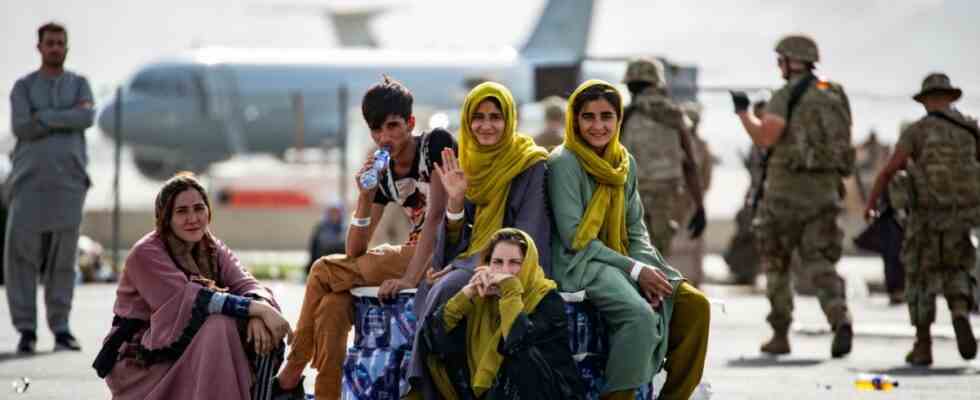Like the other Western allies, Germany withdrew from Afghanistan last summer, humiliated. After 20 years of service in the Hindu Kush, Berlin, due to its own mistakes, has contributed to the Taliban being back in power, even if the main culprit lies with the USA, the largest provider of troops.
The political establishment in Berlin is now setting up two bodies to draw lessons from the disaster: A committee of inquiry in the Bundestag, which is supported not only by the government factions but also by the Union. This should occupy the last year and a half until the withdrawal from Afghanistan and the return of the Taliban to power. And then there follows a commission of inquiry made up of experts, which takes on the entire 20 years that Bundeswehr soldiers, diplomats and development workers were in Afghanistan.
It’s just a cliché, but the failure in Afghanistan is actually an opportunity for German politics: If the debacle is dealt with ruthlessly, lessons can at least be learned for the future, especially with regard to the question of what standards Germany should apply should participate in wars – or not.
The 18 months that the investigative committee is taking on were marked by the fundamental diplomatic error of the Trump administration, which agreed a deal with the Taliban in 2020, but left the Afghan government out in the rain. That was the accelerant for the fall of Kabul. Why didn’t Berlin, which had some very capable diplomats with high reputations deployed in Afghanistan, take a more courageous stance?
The will to help was not there
From the German perspective, when the mission ends in summer 2021, what will be remembered above all is the federal government’s shabby treatment of the Afghan local forces when the soldiers of the Bundeswehr flew home, but their local translators and employees were left in the lurch. The question for the sub-committee: Was it only due to the inertia of the responsible foreign, interior and development ministries that help was not provided quickly and unbureaucratically? The honest answer will have to be: no. Rather, it was political will not to fly out the Bundeswehr helpers at the expense of German taxpayers, as would have been necessary and appropriate in view of the danger. This omission could not be rectified by ministers eagerly tweeting about late rescue missions for local workers when Kabul had already fallen to the Taliban.
For the Commission of Inquiry, the more fundamental aspect of the mission remains: the self-deception of German foreign policy, which 20 years in Afghanistan have revealed. There was no genuine interest beyond the alliance obligation that Berlin wanted to meet with the United States after the September 11 attacks. Germany agreed to fight a war on American terms. However, it was neither militarily equipped nor politically willing to take any further action than was necessary.
Germany is now evaluating this war, at the end of which the yield and expenditure are disproportionate: The Taliban are back, which is exactly what the mission in the Hindu Kush should avoid. If the U-Committee and the Enquete Commission work this out, a lot would be achieved to avoid repeating the mistakes made in Afghanistan in the future.

